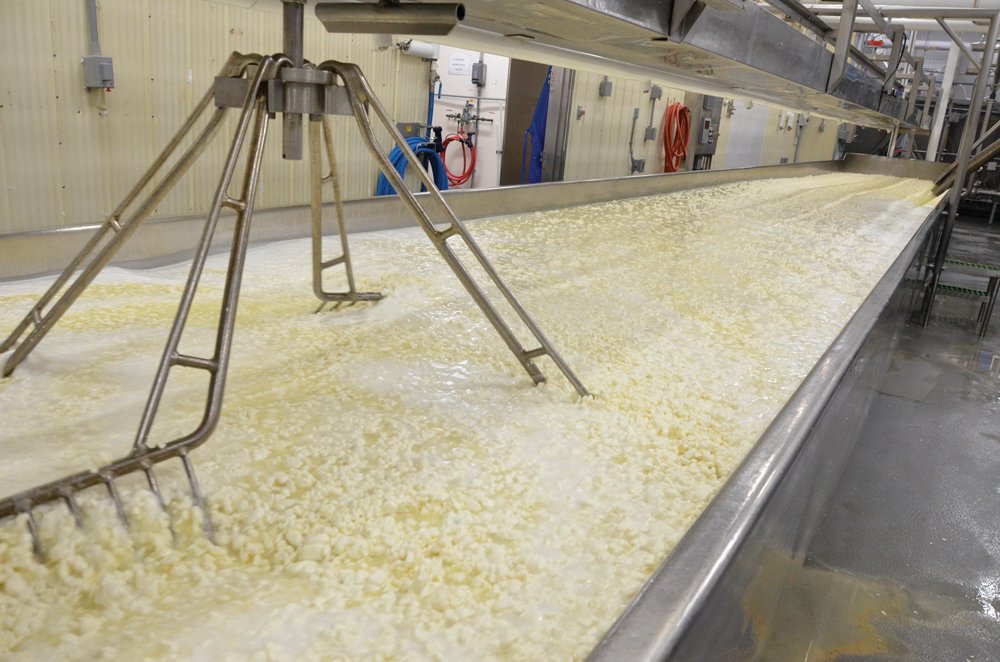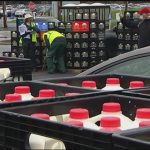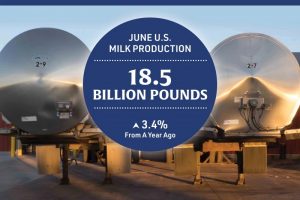
After a drop in dairy demand, Dairy Farmers of Manitoba and Bothwell Cheese are turning excess milk into thousands of kilograms of cheese for Winnipeg Harvest.
“Everyone is under hardship,” said David Wiens, chair of the Dairy Farmers of Manitoba. “The need for food banks will only go up at this time.”
DFM, Bothwell Cheese, along with other milk transporters and processors, have donated milk and cheese to Winnipeg Harvest for many years. They’ve committed to donating an additional 6,000 kilograms of cheese in the next few months, said Lynne Roy, Bothwell’s brand manager.
This represents 60,000 litres of milk, said Wiens.
Since the COVID-19 pandemic shuttered most of the food-service industry, demand for dairy products has dropped, leading to some dairy farmers in other provinces being forced to dump milk. Wiens said Manitoba farms haven’t needed to dump milk because of the excess of milk-processing capacity in the province.
Meanwhile, with businesses closed and many out of work, food banks across the provinces have seen a 30 per cent increase in demand for food said Kiersten Haight, communications co-ordinator with Winnipeg Harvest.
In the same time, donations have dropped 60 per cent, Haight said. She explained that many donations come from food drives and private events, which are now nixed by social distancing measures.
Winnipeg Harvest, which distributes to food banks around Manitoba, is also getting fewer donations from grocery stores.
The organization has resorted to buying groceries, which Haight said it wasn’t doing before the COVID-19 crisis, which led to an urgent call for donations of money on Winnipeg Harvest’s website.
Milk and cheese are a “hot commodity” in food hampers, Haight said. Winnipeg Harvest prioritizes giving milk to pregnant women and mothers, she added.
However, dairy farmers have been told to reduce production and to expect a drop in milk blend price.
“We will have to reduce our production to the point where we don’t have the surpluses we have today,” Wiens said. “So we can maintain a livelihood for our dairy farming families.”
To stay afloat amid lower demand, farmers will need to dry off cows sooner than usual, change feeding strategies to produce less milk, or consider culling cows, he said.
Uncertainty is also taking its toll, said Wiens. They can’t predict what will happen next month or, when things begin to reopen, how much damage will have been done to the food-service industry. Meanwhile, seeding season is approaching.
“This is really kind of burdening heavily on farmers right now,” said Wiens.























